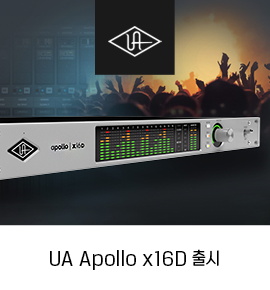10 Motor Vehicle Case Strategies All The Experts Recommend
페이지 정보
작성자
Benny Darwin
작성일
본문
While laws regarding motor vehicles differ from state to state, there are some similarities across the nation in titling requirements, registration requirements, fees and taxes, and driver's licenses. On LawServer you'll find federal and state laws on motor vehicles, as in addition to related legal questions and answers.
The nationals of countries that have ratified the International Road Traffic Agreement may drive their vehicles in the United States for touring purposes without U.S. license plates and drivers' permits. A written approval from DOT is required prior to.
Vehicles Imported by Nonresidents
Nonresidents who wish to import their personal cars should have them documented to ensure that they don't be subject to additional duties. This documentation includes the bill of lading, certificate of origin, and any other legal documents that pertain to the vehicle. All documents pertaining the vehicle need to be in English. If the vehicle is owned by more than one individual, each signature must be notarized and accompanied by a black and white copy of their valid driver license or ID card. If they don't have these documents a Power of Attorney may be used to sign all the paperwork.
To be legally entitled the vehicle that is imported must comply with the Department of Transportation's (DOT) and Environmental Protection Agency's (EPA) regulations. The DOT standards require particularly that motor vehicles that are not older than 25 years must conform to safety and bumper standards, and that each automobile be identified by the manufacturer as having met these standards.
EPA regulations also require that all vehicles must meet the standards for air pollution emissions. If a nonresident wants to import a vehicle that isn't in compliance with standards, they'll need to file EPA form HS-7 and DOT form 3520-1 with CBP to get prior approval from EPA.
Imported Race Vehicles for Racing
The laws governing motor vehicles differ between states, however, there are some similarities across the nation regarding registration of vehicles and being licensed to drive. Federal laws also regulate the safety of drivers, highways and vehicle security. The National Highway Traffic Safety Administration within the Department of Transportation establishes and enforces national standards for vehicles and equipment, including various motor sport related requirements.
The first step in importing racing cars to the United States is to get written approval from DOT. This is for cars which will be imported for the duration of their ownership or temporarily entered into racing.
You'll require a CAMS license and proof that you've competed in motorsports, and have a valid desire for a car. You will also need to satisfy a variety of other requirements for compliance, including fitment of child restraint points and 17-digit VIN plates.
The EPA won't grant you permission to import a race car into the US unless it is in race configuration at the time of entry and has features that make it unsafe or unsuitable for use on roads and highways. You will need to check box 7 on the HS-7 customs form, and then submit an EPA letter prior to when the vehicle is cleared.
Touring vehicles imported for touring
Tourists from Central and South American nations that have signed the Inter-American Convention of 1943 are allowed to drive their automobiles in the United States without obtaining license plates or permits for a period of one year or the validity of their documents. They must present EPA forms AP3520-1 and DOT 7 upon entry.
Imported vehicles used for touring are also subjected to customs duties of 40% and 10 percent VAT, as well being subject to an ad valorem rate ranging from 15% to 100% based on piston displacement. These taxes and duties apply to spare parts that are included in the imported vehicle. The presence of the owner of the vehicle is essential.
Vehicles Imported For Commercial Purposes
The law defines a "motor vehicle accident attorneys vehicle" to be any device capable of transporting people or property, and is propelled using power other than muscle power. This includes all vehicles, notwithstanding for (a) electric personal assistance mobility devices used by a person who suffers from disabilities, (b) farm type tractor used in the farming or operation, as well as implements of snow plowing or grooming, (c) vehicles that are solely driven by rails or tracks, and (d) vehicles with all-terrain capabilities. Each state's statute may differ slightly from the definition, and any nonexempt vehicle that qualifies under the statutory definition is subject to the state's licensing and registration laws, as well as financial responsibility laws.
The motor vehicle accident lawsuits vehicle division of the state governs dealers who sell second-hand and new cars manufacturers, moving companies, and other motor vehicle accident law firms; linked site, vehicle related businesses. It also oversees the state's Lemon Law which offers relief to customers who prove that they purchased a vehicle that was defective.
A government motor vehicle is a vehicle that was acquired by the executive through purchase, forfeiture, excess or commercial lease or GSA fleet leasing, and is used to carry out the transportation function of an agency, or business. This encompasses both foreign and domestic fleets. It also includes any vehicle used to respond to emergencies or provide other emergency services by the Public Safety department. The definition does not include private vehicles of firefighters or police officers ambulances, police vehicles, and any other vehicle belonging to the commissioners court of a county with a population greater than 1 million.
관련자료
-
이전
-
다음
등록된 댓글이 없습니다.




